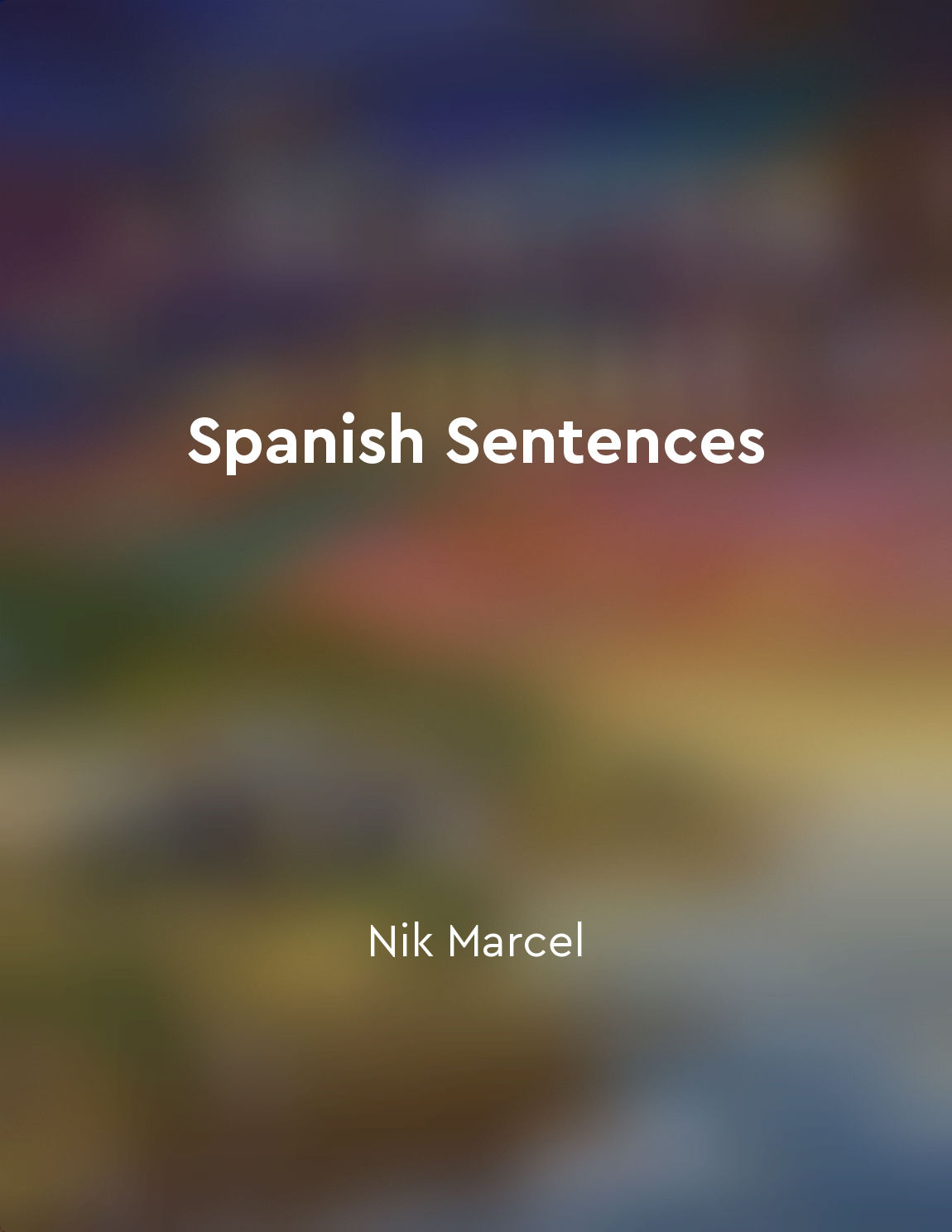Closing remarks and farewell phrases from "summary" of Easy Spanish Phrase Book NEW EDITION by Pablo Garcia Loaeza
As we come to the end of our conversation, it is important to know how to wrap things up with polite and respectful closing remarks. In Spanish culture, saying goodbye is just as important as saying hello. It shows good manners and respect for the person you are speaking with. One common way to say goodbye in Spanish is "Adiós", which is equivalent to "Goodbye" in English. This is a simple and straightforward way to end a conversation. However, if you want to be a bit more casual, you can say "Hasta luego", which means "See you later". This conveys a sense of familiarity and informality. Another popular farewell phrase in Spanish is "Hasta mañana", which means "See you tomorrow". This is a friendly way to say goodbye when you plan on seeing the person again soon. If you want to wish someone a good day or evening, you can say "Buenas tardes" (Good afternoon) or "Buenas noches" (Good evening/night) respectively. In more formal situations, it is common to use phrases like "Que tenga un buen día" (Have a good day) or "Que le vaya bien" (May you go well). These phrases show respect and consideration for the other person's well-being. Remember, the way you say goodbye can leave a lasting impression, so it is important to choose your words carefully.- Mastering the art of closing remarks and farewell phrases in Spanish is essential for effective communication. Whether you are saying goodbye to a friend or a colleague, knowing the right words to use can help you leave a positive impression and strengthen your relationships. So, next time you are ending a conversation in Spanish, remember to choose your words thoughtfully and respectfully.
Similar Posts
Show curiosity and interest in others' stories
When we show sincere interest in others, we create a connection that goes beyond just exchanging words. By showing curiosity in...
McCandless was deeply influenced by the wilderness
McCandless's fascination with the wilderness ran deep. It was a part of him, something that seemed to define his very existence...
Slang words and phrases have different meanings than standard Spanish
When learning Spanish, it's important to understand that slang words and phrases can have different meanings than standard Span...

Learn idiomatic expressions for authentic conversations
To engage in authentic conversations in Spanish, it is essential to learn idiomatic expressions. Idiomatic expressions are phra...
Release expectations and attachment
The idea is to let go of any preconceived notions you may have about how things should be and how they should unfold. It's abou...
Direct and indirect objects are common in sentences
Direct and indirect objects are essential components of Spanish sentences. Understanding how these objects work is crucial for ...

Use simple language
When crafting emails, it is crucial to use language that is easy for the recipient to understand. This means avoiding jargon, c...

Describing events and celebrations in Tajik
To talk about events and celebrations in Tajik, you need to learn specific vocabulary related to these occasions. This will hel...

Nouns in Spanish have gender, either masculine or feminine
In the Spanish language, nouns are classified as either masculine or feminine. This distinction is not based on the physical ch...

Take advantage of languagelearning apps
Languagelearning apps can be powerful tools for improving your English skills. These apps offer a variety of features that can ...

